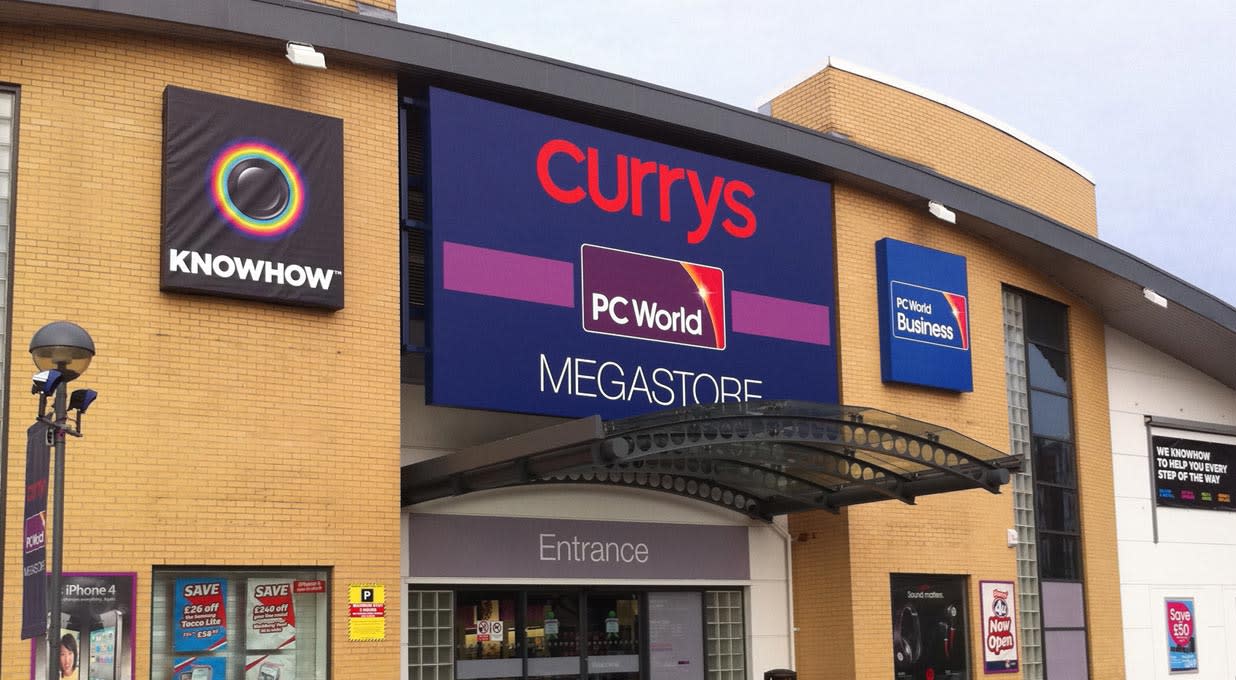Both potential buyers for Currys have walked away from the table. Chinese retailer JD.com had been in the early stages of considering a bid, but on Friday confirmed it no longer plans to do so and Currys shares dropped 5% shortly after the announcement.
This puts a halt to the prospect of a bidding war, after Elliott withdrew from talks earlier last week. The hedge fund’s offer of £750mn was rejected, with Currys saying it undervalued the business.
There are currently no other firms known to be in takeover talks with Currys.
Underlying pre-tax profit projections have been revised to "a minimum of £115mn," an increase from the previously advised range of £105-115mn.
The shares were broadly flat in early trading.
Our view
Currys’ shares took a dip on hearing that JD.com was joining Elliott Investment Management in backing out of potential takeover talks. Latest figures give a little more weight to the view that the offers undervalued them. The retailer increased underlying pre-tax profit forecasts, but they are still up to £4mn down on the prior year.
Currys' performance has been underwhelming in recent times. Consumers are simply struggling to justify discretionary spending on TVs, computers and gadgets. That's led to record credit adoption in the UK & Ireland. But with inflation set to fall and interest rate cuts on the horizon, there are hopes that these headwinds are subsiding, amid some signs of ‘encouraging momentum’.
In the Nordics region, the second largest segment, the market remains tough but there are glimpses of progress. Like-for-like sales in the region returned to growth, following declines during the crucial Christmas season. Continued recovery here will be key to a shift in market sentiment and profitability.
Last we heard, market share slipped lower as Currys shifted its focus towards more profitable sales, rather than compromising on price to help offload inventory faster. While there are negatives to this, we're supportive of holding firm on this front and it's helped improve gross margins across the business.
Despite the challenges, there are some bright spots.
The group's services channels have also been a beacon of light. Services typically have higher margins than goods sales, so can help to relieve some of the pressure being felt.
And the sale of its Greek electronics retailer, Kotsovolos, should bring in around £156mn of net cash, and allow management to sharpen its focus on the remaining regions. The plan is to use some of the funds to pay down debt levels, strengthening the balance sheet. This brings with it the potential to return any surplus cash to shareholders in the form of a dividend. However, this is not guaranteed and we caution against any expectation of continued payments over the near-to-medium term, given the group's struggling performance and negative free cash flows.
The group’s valuation has soared in recent months on expectations that a formal bid will materialise. Now talks are over we are left waiting for the dust to settle. Although sales have been stronger than expected, consumer electronics will continue to be a challenging place to be as spending power remains under pressure. A great deal also hinges on continued recovery in the Nordics, and until markets are convinced meaningful progress is being made, group performance is likely to be lacklustre.
Currys key facts
All ratios are sourced from Refinitiv, based on previous day’s closing values. Please remember yields are variable and not a reliable indicator of future income. Keep in mind key figures shouldn’t be looked at on their own – it’s important to understand the big picture.
This article is not advice or a recommendation to buy, sell or hold any investment.No view is given on the present or future value or price of any investment, and investors should form their own view on any proposed investment.This article has not been prepared in accordance with legal requirements designed to promote the independence of investment research and is considered a marketing communication.Non - independent research is not subject to FCA rules prohibiting dealing ahead of research, however HL has put controls in place(including dealing restrictions, physical and information barriers) to manage potential conflicts of interest presented by such dealing.Please see our full non - independent research disclosure for more information.


